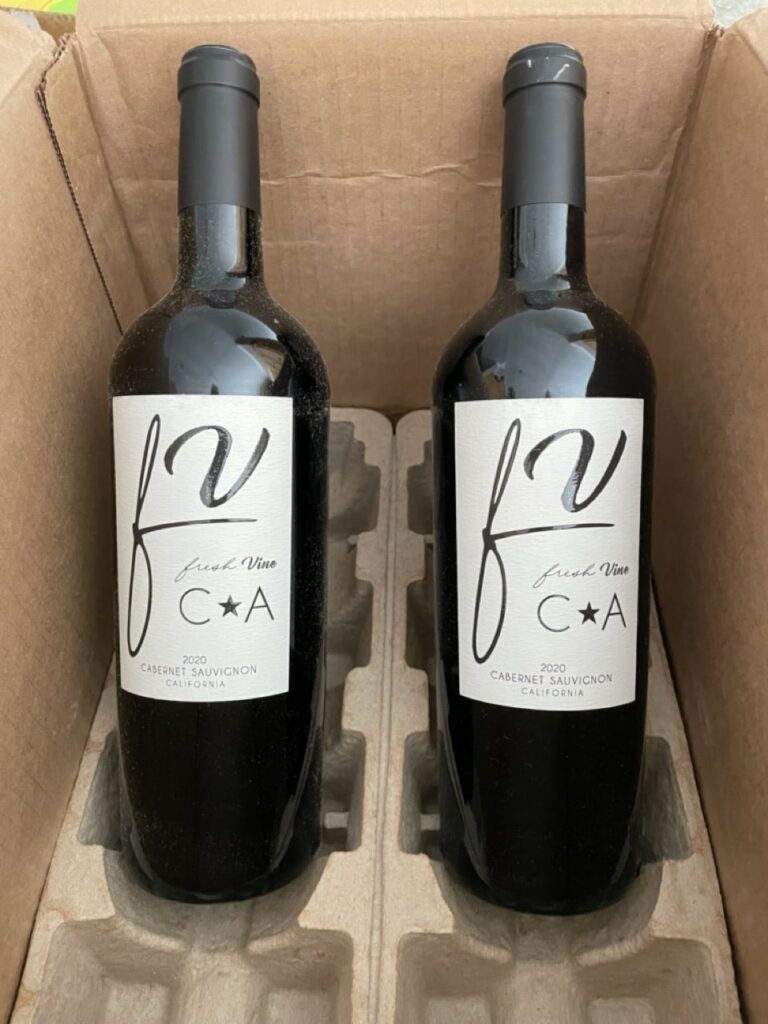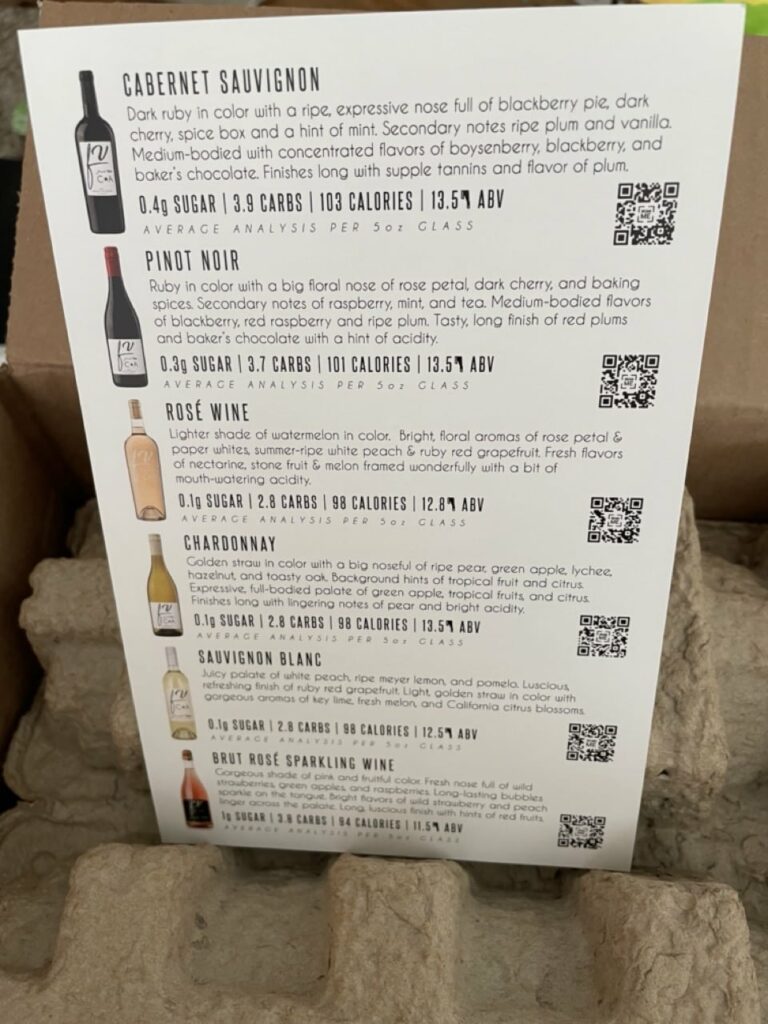A Guide to Gluten-Free Wine
Introduction to Gluten-Free Wine

Isn’t Wine Gluten-Free?
Believe it or not, most wine is naturally gluten-free. Gluten-free wine is a wine that does not contain the protein gluten. Most wines are naturally gluten-free as they are made from grapes.
Winemaking Additives
However, some wines may contain gluten from other ingredients added during the wine-making process, such as glycerin or flavorings. For example, some wines and wine coolers may use gluten-containing grains, such as wheat, rye, or barley, as a sweetener or thickening agent. Other products and processes the winery uses may not be added to the wine.

Visit our partner, Groupon, for 150 hours of Gluten-Free cooking instruction to enhance your gluten-free lifestyle for less than $9
Additional Winemaking additives
Still, exposure to other substrates in the wine-making process includes wheat paste (to seal oak barrels) and fish proteins and egg whites used for the clarifying and fining process. There are a few things to remember when shopping for gluten-free wine, but with a bit of knowledge, you should be able to find a delicious gluten-free wine that suits your taste.
Fresh Vine Wines
One of the Best Gluten-Free Wines We’ve Tried
We happened upon a great deal for four bottles of wine from Fresh Vine. The California Cabernet Sauvignon, Pinot Noir, Chardonnay, Rosé Sparkling Wine (included free in the shipment), Sauvignon Blanc, and Limited Reserve Napa Cabernet are all produced and bottled in Napa, California. Fresh Vine has got you covered whether you’re looking for a light and refreshing white wine or a full-bodied red wine that is low-carb and gluten-free.
The Benefits of Drinking Gluten-Free Wine
There are a few benefits to drinking gluten-free wine. Choosing a gluten-free wine is popular for people with celiac disease or non-celiac gluten sensitivity to avoid health problems. These wines are also often lower in histamines, which can benefit people sensitive to this compound. Additionally, some people find that drinking gluten-free wine helps them to feel less bloated and tired after consuming alcohol.
Additional Benefits
There are several more benefits of drinking gluten-free. First, it’s advertised as safer for people with celiac disease or gluten sensitivity. Second, it’s generally lower in sulfites than conventional wines, making it a good choice for people sensitive to this preservative. Additionally, since many gluten-free wine brands are made with organic grapes, they may be more environmentally friendly than conventional wines. The wines also tend to be lighter and more refreshing than their traditional counterparts, making them an excellent choice for summer sipping. Whatever your reasons for choosing the wine, many delicious options suit your taste.
How To Choose the Right Gluten-Free Wine

Is gluten-free Wine Popular?
Gluten-free wine is one of the fastest-growing segments in the wine industry. As a result, more and more people are interested in gluten-free options for various reasons. Whether you’re looking for a gluten-free wine brand because you have celiac disease or simply trying to avoid gluten, it’s essential to know how to choose the right wine for your needs. Here are a few tips:
Read the label carefully. Not all wines are truly gluten-free. Some companies use methods that remove gluten from the final product, but traces may remain. If you’re celiac or have a severe gluten allergy, it’s best to avoid wines that don’t expressly state that they’re gluten-free.
Pay attention to ingredients. Even if a wine is gluten-free, it may contain other ingredients you’re allergic to or sensitive to. So be sure to check the label for any allergens before purchasing.
Consider your personal preferences. Just because a wine is gluten-free doesn’t mean it will taste good. Be sure to try a few different brands and types of gluten-free wine until you find one you enjoy drinking. With so many options on the market, there’s sure to be a wine that’s perfect for you!
Conclusion
The gluten-free movement has gained much momentum in recent years as more and more people are diagnosed with celiac disease or gluten sensitivity. This has led to several gluten-free products, including bread, pasta, and beer. And now, wine is the latest addition to the gluten-free landscape.
There are a few things to remember when shopping for gluten-free wine. First, check the label to see if the wine is made with grapes grown in a certified gluten-free vineyard. Second, ask the winemaker (email or call the winery) if they use any gluten-containing ingredients.
Today, several companies are producing gluten-free wine using traditional methods. These wines are made from grapes that have been carefully selected to avoid hybridization with wheat or other gluten-containing ingredients. In addition, these wines are produced using minimal processing techniques to preserve the natural, gluten-free status of the grapes. As a result, gluten-free wine is now widely available for everyone to enjoy.
FAQs About Gluten-Free Wine
Gluten-free wines are becoming increasingly popular as more and more people are diagnosed with celiac disease or gluten sensitivity. But what exactly is gluten-free wine? Here are some frequently asked questions about gluten-free wine to help you make an informed choice.
Is gluten-free wine really gluten-free?
Yes, gluten-free wine is made from grapes not exposed to gluten during growth or production. Instead, the grapes are grown in gluten-free vineyards, and the wine is made using gluten-free fermentation methods.
How do I know if a wine is gluten-free?
A wine labeled gluten-free contains less than 20 parts per million of gluten, which is often quoted as the safe limit for people with celiac disease or gluten sensitivity. You can also check the ingredients list on the label to ensure that no gluten-containing ingredients have been used in producing the finished wine.
Does all gluten-free wine taste the same?
Unlike regular wines, gluten-free wines come in various styles and flavors. Reds, whites, and sparkling wines are available, so you’ll indeed find one that suits your taste.
Is gluten-free wine more expensive than regular wine?
Not necessarily. Gluten-free wines are made using the same high-quality grapes as regular wines and can be as affordable. However, some premium wines may cost slightly more due to the extra steps taken to ensure they are gluten-free.








![What is Trento DOC Sparkling Wine? [WSET2 Reviewed]](https://grapeandbarrel.com/wp-content/uploads/2024/04/0oflrry-rim1712673478-768x432.jpg)
![Why Are Some Wines Described as Buttery? | [WSET4]](https://grapeandbarrel.com/wp-content/uploads/2024/04/01af0647-bfac-424a-bd94-f220d92fd621-768x439.png)
